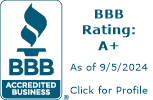Unfortunately, everyday bad habits factor into the majority of house fires. Maven Construction Group, a certified provider of Gainesville fire damage remediation services, discusses six common bad habits that everyone should break to prevent house fires.
1. Not Cleaning Out Dryer Lint
The next time you remove a load of towels — or any clothes — from the dryer, take a minute to clean the lint trap. Dryer fires cause $35 million in fire damage reconstruction each year, according to the U.S. Fire Administration, and more than one-third of those fires were caused by lint build-up. The lint trap collects most fabric lint, but lint can accumulate around the drum and in the dryer vent. When lint collects in these areas, heat is unable to escape, igniting the lint.
2. Leaving Lit Candles Alone
The reason this is mentioned over and over is that candles are responsible for starting an estimated 8,700 house fires each year. Unattended bedroom candles caused 37 percent of fires resulting in a need for fire damage restoration from 2011 to 2015, according to the National Fire Protection Association. Always extinguish candles before leaving a room and never leave even one candle burning if you leave the house. Keep lit candles away from bedding, books, drapes, flammable decorations, furniture, and anything that can catch on fire.
3. Procrastinating On Chimney Cleaning
Fireplaces create a relaxing ambiance but need regular cleaning to prevent house fires. Creosote, a common byproduct of burning wood, is the oily substance that lines many chimneys. If you have a fireplace, it and the chimney should be cleaned along with a yearly inspection. This helps prevent chimney fires and carbon monoxide poisoning.
4. Using Damaged Or Worn Power Cords
All electrical cords eventually wear out but many people continue to use them as long as the cords are supplying power. Exposed wires and frayed ends are two signs it’s time to replace the cord. Continuing to use a damaged cord increases the risk of electrical shock and fire as heat from the exposed wires can ignite any flammable material or surface.
5. Overloading Extension Cords
Extension cords can be useful on their own but connecting more than one doesn’t increase the usefulness. Instead, it creates a fire risk by overloading the cords with electricity. Many people use power strips as a seemingly safer alternative to multiple extension cords. A frequent misconception of power strips is that they have built-in surge protection. Yet, many power strips only act as additional outlets and can’t control power flow or surges.
6. Clustering Appliances
It sounds like a space-saving tactic, but clustering appliances side-by-side with little to no room in between is a fire risk. All appliances generate heat which disperses into the surrounding area. That is unless the appliances are tightly lined up and air flow is unable to help the heat dissipate.
Each appliance should be plugged directly into a wall outlet — not into an extension cord or power strip. Multiple appliances plugged into the same location pull a significant amount of electricity which may overload the wiring and start an electrical fire.
Who Should You Call If Fire Damage Occurs?
The devastation of a house fire often goes beyond property damage. Maven Construction Group strives to help every customer regain normalcy in their life as quickly as possible. Because we self-fund every project, our team begins the reconstruction and restoration process immediately. For quality fire damage restoration Gainesville residents can rely on, contact Maven Construction Group today!


